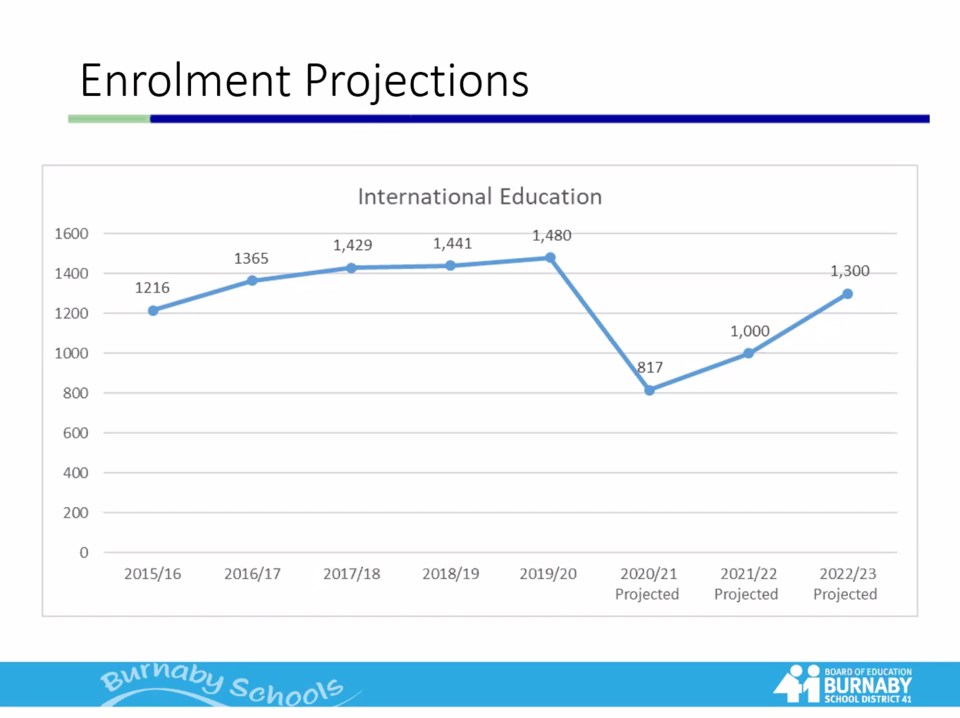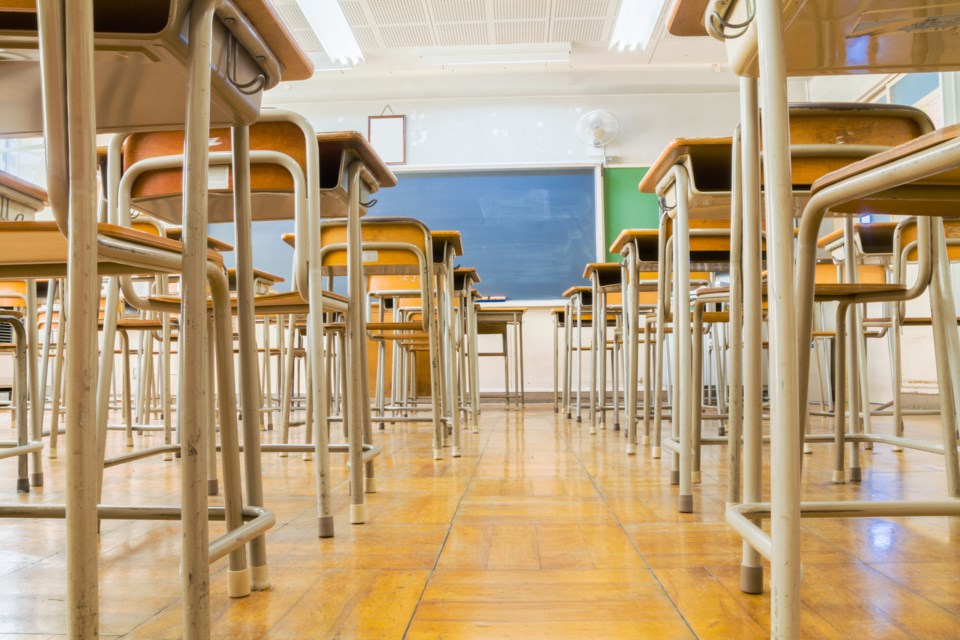Some “incredibly prudent” decisions by past boards and staff will help the Burnaby school district fill an $11-million hole in its 2020/21 budget where international student fees should be, according to secretary-treasurer Russell Horswill.
Because of COVID-19, the district projects it will lose 45% of its international student enrolment next year.
And even that prediction could turn out to be not gloomy enough.
“The number could be higher; the number could be lower as well,” Horswill said during a public online presentation of the draft budget Tuesday. “This is a high-risk area in the budget. There are all sorts of international and domestic and border issues, public health issues that could greatly impact the number of international students that come in.”

Fortunately, the district has a $4-million international education reserve fund to fall back on as well as other accumulated surpluses set aside for just such rainy days.
“That was the previous board and (former secretary-treasurer) Greg Frank and company,” Horswill told the NOW. “They saw the risk of the international program and started to put money aside. When I got here, I saw the wisdom of that, as did the board, so we continued to do that over the past four years.”
The district predicts it will face a financial hit of more than $14 million because of COVID-19 next year.
The biggest loss is projected to be more than $11 million in international student fees, but the district also faces lost investment income ($1 million), summer school fees ($1.5 million), continuing education fees ($60,000) and rental income ($455,360) because of the pandemic.
On top of that, the district will also get about $1.6 million less from the province than anticipated next year because of changes to its allocation formula.
“There were some gains and some losses across the province,” Horswill said of those changes by the government. “The Metro Vancouver districts across the board were net losers.”
All told, the district faces an operating shortfall of just over $11.7 million next year.
The draft budget presented Tuesday proposes covering about $8.88 million of that with $2.5 million from the international education reserve fund and about $6.38 million from other accumulated surpluses.
To cover the remainder, the plan proposes slashing more than $3 million from the district’s services and supplies budget, which includes “everything and anything that’s not salary and benefits,” according to Horswill.
“It will definitely be limited funds available for schools and departments,” he said. “We think it will take us down to sort of the minimum allowable budget allocation for folks to continue to do business.”
The good news, thanks to some creative shifting around of staffing, is that there will be few net staff cuts.
Initially, the district faced cutting more than 34 teaching positions tied to the lost international student fees.
But the proposed budget would buffer that blow by trimming some CUPE support staff, staff at the district office and a couple of non-enrolling teaching positions.
Fortunately, the district is also projecting some enrolment growth, which will bring in more money from the province, according to the budget presentation.
“After we adjust for enrolment growth, after we adjust for the loss of international students, we will have 11 fewer teachers next year; we will have 11 more CUPE support staff and two fewer exempt positions,” Horswill said.
The budget goes to the board for final approval at a public meeting June 23.
Whatever budget the board approves, Horswill said it will get an extra look in mid-September this year, so staff can update financial projections based on the actual number of students, including international students, who show up.
“Generally the review that happens in mid-September is primarily focused on education assistants … but in this case we’ll also be looking at our custodial needs, our educational needs and, to a certain extent, technology needs that’ll be required to support whatever level of education that we’re at,” Horswill said.
He said the district expects to find out in late August which stage of B.C.’s K-12 five-stage education restart plan it will be operating under come September.



